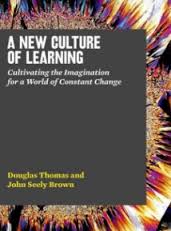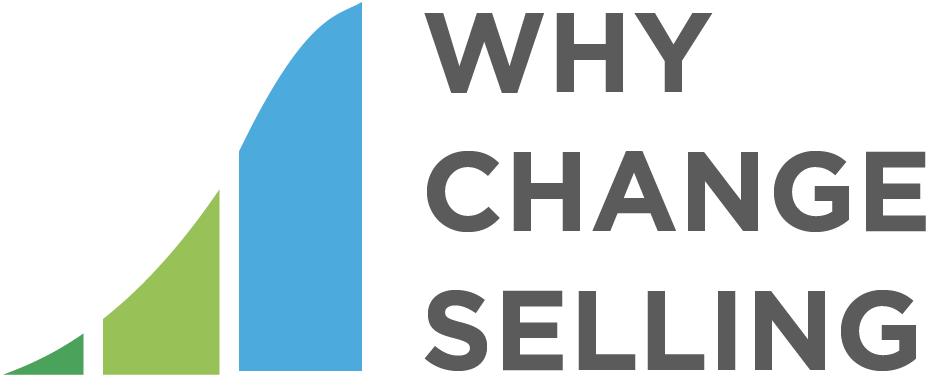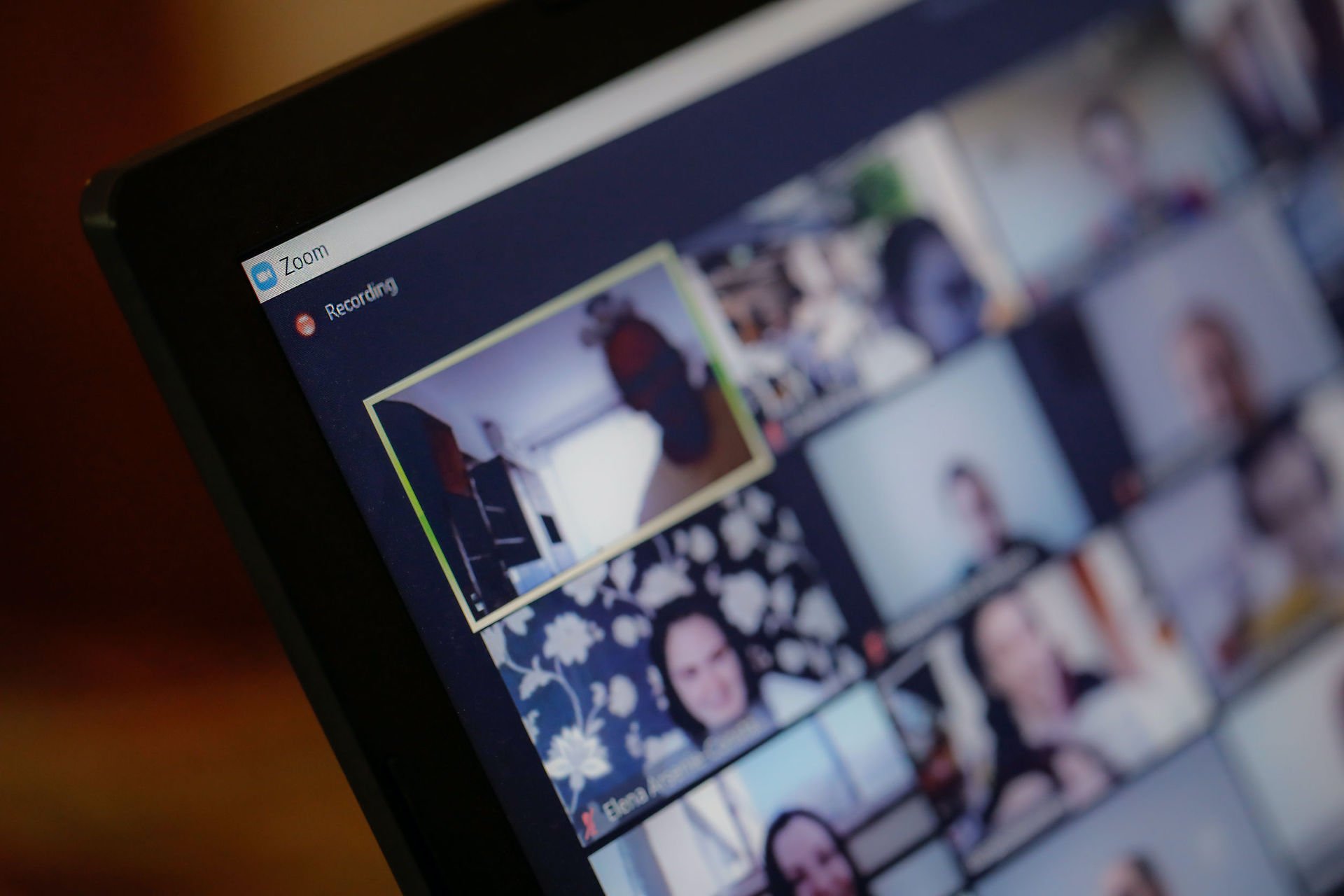I was in the audience when
John Seely Brown and
Prof. Peter Denning took the stage a
t the
SRII conference
in San Jose, CA. - what a privilege.
On each desk for the session was a small, but important book " A New Culture of Learning ", written by John Seely Brown and Douglas Thomas.
Thomas.
According to Denning and Brown, "The half-life of a learned skill is 5-years" - this means that much of what you learned 10 years ago is obsolete and half of what you learned 5 years ago is irrelevant.
This article and the review of A New Culture of Learning will be of interest to professionals in any field to encourage thinking about new ways of training, delivering, and acquiring knowledge as no one is immune from knowledge obsolescence. More recent insights from John Seely-Brown on learning and the urgency of sales learning are captured in a follow-on article, "Learning - to learn to sell"
On each desk for the session was a small, but important book " A New Culture of Learning ", written by John Seely Brown and Douglas
 Thomas.
Thomas.
According to Denning and Brown, "The half-life of a learned skill is 5-years" - this means that much of what you learned 10 years ago is obsolete and half of what you learned 5 years ago is irrelevant.
This article and the review of A New Culture of Learning will be of interest to professionals in any field to encourage thinking about new ways of training, delivering, and acquiring knowledge as no one is immune from knowledge obsolescence. More recent insights from John Seely-Brown on learning and the urgency of sales learning are captured in a follow-on article, "Learning - to learn to sell"
This video taken
at the 2015 Aspen Institute
of John Seely Brown, co-author of the book "The New Culture of Learning" is well worth your time.
It will be of particular interest to sales leaders, sales trainers and educators.
We simply cannot learn and know what we need to know to stay current, relevant, and to lead, using the old ways of education/training and learning.
It means the learning experience itself must change, it must be immersive (doing it while learning, like white-water rafting), social and involving peers, physical as well as virtual, and available on-demand, via the cloud and delivered to mobile devices as well as PC's.
Why Read This?
The book, "A New Culture of Learning" is an important read for professionals, educators, and trainers and food for thought for business leaders looking to the future.The big idea is to understand the profound changes brought about by technology. It's not about school reform. People are learning by doing and asking fresh questions.
Trainers and educators are looking for new approaches to sales training and on-the-job education because traditional "product-focused" methods are producing poor outcomes from training investments.
Long ramp-times in technology sales remain a problem, yet product cycles are getting shorter. We have to learn faster and on the job. Buyers are self-educating and salespeople are being marginalized to the configuration and discounting end of the buying process. Salespeople have to get better fast and this means learning new skills and competencies to remain relevant - and employed.
The Learning Process is Poorly Understood
What happens to learning when we move beyond the prior stable century and millennium of learning to the fluid 21st century, where technology is constantly changing and creating new opportunities to reinvent learning and knowing?It's very disruptive to the educational establishment. "The past as a solution set is no longer a viable option", John Rendon.
The new learning culture is a familiar dynamic as it encompasses our notions of games, play & imagination.
- Play is defined as tension between the rules of a game and the freedom to act within those rules.
- Play happens within a medium for learning - it creates a culture in which information, ideas, and passion grow.
- A new culture of learning allows us to recognize, harness & institutionalize these ideas.
- Requires a shift in thinking about education.
Arc of Life Learning
Arc of life learning comprises the daily activities in our lives that keep us learning, growing and exploring. Play, questioning, and imagination are at the heart of the arc of life learning.We can augment learning in nearly every facet of education and stage of life, using peer learning and the process of creating and making or mastering something new. Learning requires content - which can be taught, skill -which can be mentored, and disposition - which can be cultivated.
The following concepts will be familiar to anyone who has ever played massively participative and immersive video games, such as World of Warcraft.
We need to think about how from our first breath, we begin to learn; reflect on how children learn and the wonder of "why".
When we go to school and start being taught content so we can pass tests, we stop experiencing the wonder of learning and play.
There is a huge difference between learning and being taught.
Frameworks
- We live in a massive and fast-evolving information network - with unlimited access to learning about anything.
- We are bounded and structured by our environments; we must exploit our ability to build and experiment within boundaries.
The new culture of learning gives freedom to make the general personal and to share a personal experience that adds to the general flow of knowledge.
Why do we need it?
Traditional Education is Broken
Traditional education structures are no longer keeping up with pace of change. We need to move from this impersonal fact-based stimulus-response method to a learning environment.Environments don't break.
Lots of people are calling for the demolition of the traditional education system.
A better question is how will schools blend or fail to blend with the freedom and wealth of the digital information network
- We need to evolve thinking from "fixing a problem" to "growing a solution".
- Our traditional concept of teaching = learning about the World
- New culture = learning through engagement within the World
"Most of what we know will remain relatively unchanged for a long enough period to justify the effort of transferring it". This is a pitfall in 21st-century thinking.
Ask anyone using the Internet 10 years ago, what's changed in that time - everything!
Learning to embrace change is a new mantra. Learning is constant.
Learning is not an isolated process of absorption of facts that turn into knowledge, that was a 20th. Century education mindset.
We need to think of learning as a cultural and social process of constantly engaging the changing World around us.
Children and Play
Children make use of play and imagination to make sense of the constantly changing world around them to learn and grow.- Play is how children make sense of the World
- Play is a strategy for embracing change in a World in constant flux
Most workplaces are moribund.
The challenge is to marry structure and freedom to create something altogether new.
Peer-Peer Learning
Principles:- The old ways of learning can no longer keep up
- New media and digital are making peer-peer learning easier and more natural
- All equal, from teacher-student to mentors, guides, and participants
- Not revolutionary, just ignored
- University students immersed in a peer learning environment, classroom 3-4 hours/day
Learning collectives
Blogs are learning collectives. A good blog is a medium for learning and creates a space for a collective to emerge where personal experience can be shared and individuals learn and everyone in the collective benefits. - (So please make comments when you read something worthwhile, don't just like it.)
Toward a New Culture of Learning
Arc of life learning never stops.- 21st. Century learning = doing, watching, experiencing
- Current perception of learning is filtered through the lens of education. "You teach I learn"
Surrounded by vast resources and academic culture, students make connections among all resources. University life for students is grounded in experience and deeply personal.
The new learning culture provides freedom to explore interests and passions within bounded constraints.
Traditional classroom Q&A was used to learn and master specific information. This is an obsolete model teaching obsolete facts.
Reverse it: Questions are more important than answers. The key to learning is not the application of technique, but their invention. Asking questions to find answers that really matter to students is a continuous process and a starting point for learning - it invites us to ask more and better questions.
Learning as inquiry: Results in useful information regardless of the outcome.
Ask better questions using tacit knowledge + imagination.
Indwelling + familiarity with ideas, processes & practices so it becomes 2nd nature. "Polanyi"
Cornerstones: Knowing, Making & Playing
Knowing: You live to learn
Learning and the acquisition of knowledge have given humans all kinds of evolutionary advantages.
Knowing ->Shift from "what" to "where" - context is important in a constantly changing world.
The new information economy is more about how to find and evaluate information on a given topic and less about a stockpile of information and facts.
Making: Putting context to what is being created- through hands-on experience - carries more of the message.
Playing is increasingly important.
Playing Example: World of Warcraft
Massively Multiplayer Online Games MMOGs, such as World of Warcraft are large complex, constantly evolving social systems; their perpetual newness is part of the attraction.Players learn by experimentation, playing with tools in a virtual world, repeatedly making adjustments, and recording results.
MMOGs accommodate different learning modes, players use methodical trial and error experimentation or intuitively let experience guide steps.
A new culture of learning nurtures collective indwelling. The group learns and knows new things through doing and experiencing.
Prior to now, not possible, lacked the ability, and resources to make it scalable and powerful.
With access to an endless supply of collectives, learning driven by passion and play is poised to significantly alter and extend our ability to think, innovate and discover in ways not previously possible.
Gamification
But a word of caution, gamification is only a part of the puzzle, and " mandated play isn't really play" Stuart Luman.The new culture of learning allows us to ask questions that have never before been imaginable.
After reading this book, you will have more questions than answers about how to begin to create a new culture of learning in your life and your company... and that I suspect is precisely the author's intention.
Read the book



